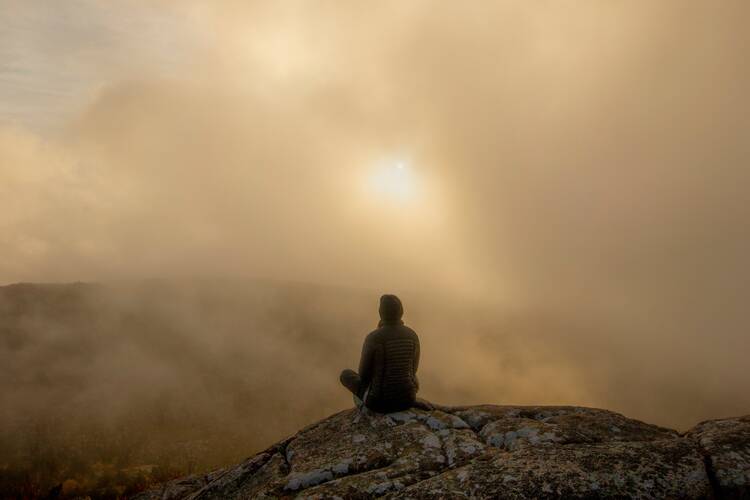A Reflection for Tuesday of the Twenty-third Week in Ordinary Time
“In these days he went out into the hills to pray; and all night he continued in prayer to God” (Lk 6:12).
Today’s Gospel reading portrays one of the six occasions in Scripture when Jesus separates himself from his disciples or throngs of followers to find a quiet space to pray. After an evening of prayer, he descends from the hills and—in one day—chooses the twelve apostles, meets with an enormous crowd, cures those with unclean spirits, conveys power to those who touch him and then delivers the Lucan version of the Sermon on the Mount. And you thought that you had a lot on your plate today.
I’m sure that many of us can relate to Jesus’ occasional desire for solitude, for freedom from distraction and for a time to pray. In theory, we can pray anywhere and at any time. But like Jesus, perhaps we’ll do a better job if we dedicate a specific time and place for prayer.
This brings me to the song “Somewhere Only We Know,”by the British band Keane. Chances are that you have never heard this tune, or if you have, it is nothing more than vaguely familiar.
Go ahead. Boot it up on Spotify, YouTube or wherever you get your music. I’ll be waiting here.
My connection with “Somewhere Only We Know”began in the mid-2000s, when our family was living in England. The tune was a huge hit in the U.K. in 2004, peaking at No. 3 on the singles chart. It was on constant replay on the radio and as background music in the pub.
Hey God, let’s meet up, you and me. Now. Somewhere only we know.
It was not Keane’s only hit in the U.K. The band parlayed Tim Rice Oxley’s keyboard-heavy melodies and Tom Chaplin’s sweet high tenor into a string of commercially successful singles and albums in the 2000s. You could think of them—and some critics did—as the poor man’s Coldplay. For better or worse, their sound never caught hold in the United States.
“Somewhere Only We Know” seems to be a straightforward expression of loneliness, nostalgia for a lost love and a longing for a romantic reunion. For example, verse two:
I came across a fallen tree
I felt the branches of it looking at me
Is this the place we used to love?
Is this the place that I’ve been dreaming of?
It was only recently—on listening to “Somewhere Only We Know” for what could have been the 200th time—that I realized that Keane’s song about a love lost could equally be interpreted as a longing for God. I can’t speak for you, but the chorus is a pretty accurate summation of my defective prayer practice:
Oh simple thing, where have you gone?
I’m getting old and I need something to rely on
So tell me when you’re gonna let me in
I’m getting tired and I need somewhere to begin
Did the three original members of Keane, all credited as writers of“Somewhere Only We Know,” embed a spiritual double meaning into their song? Probably not. But I doubt they’ll mind that I found that meaning in their verses.
Because here’s the thing: “Somewhere Only We Know” not only summons the loneliness and loss felt by the lyricists, it suggests a remedy:
And if you have a minute, why don’t we go
Talk about it somewhere only we know?
This could be the end of everything
So why don’t we go somewhere only we know? Somewhere only we know
For me, this tune works perfectly as a call to prayer, and like today’s Gospel reading, it includes a “when” and “where”.
Hey God, let’s meet up, you and me. Now. Somewhere only we know.








